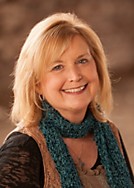A Note From Kelly King: Are you guilty of wanting to “fix” someone? If I were honest, I would admit I’m guilty—especially when it comes to those I’m closest to. In today’s article, Deb Douglas reminds us that our role as leaders is not to fix difficult people, but understand how to give them practical steps that line up with Scripture.
Hurting people are everywhere. Their hurt often becomes resentment toward life and others.
Unresolved resentment leads to becoming difficult. The difficult person:
- Lashes out at others, causing problems within the family, the small group, and the church
- Isolates herself
- Blames others for her hurt and failure to heal from the hurts in life
- Is seen as a whiner and complainer
- Is avoided by others
- Uses manipulation, passive aggressive behavior, or avoidance at times
- Shows signs of depression
The reality is: I cannot fix anyone.
I can sympathize, encourage, pray for, and offer advice, but I cannot fix the problems a difficult person faces.
The reality is: neither can you.
The challenge comes when the difficult person does not want someone to assist her in the process of getting to a better place. Instead:
- She wants someone to step into her life and take over.
- She wants to be fixed without any effort or cost to herself.
We cannot do that for her. It is not our role. It is not possible for us to step into another person’s life. We have our own lives with our own hurts, problems, and challenges.
So, what can we do?
- Know practical ways to help. Be equipped and ready to help within healthy boundaries.
- Know how to think beyond the present to long-term solutions. Solving short-term problems may create a codependent relationship, not a life change.
- Know who is available for counseling referrals.
- Accept the difficult person as someone who needs to be loved. Others may see her as difficult, making it challenging for her to establish friendships.
- Accept the difficult person as someone who needs help to move beyond the messiness in her life. Help comes from a variety of places and will require a team of helpers such as counselors, encouragers, mental health professionals, and mentors.
- Understand the real problem. We cannot live the difficult person’s life; we cannot replace the losses in her life. But we can point to the One who can! The healer of the difficult person’s hurts is God.
- Understand that there is more than one person living a messy life. Focusing on one woman’s issues prevents us from helping others in need.
There is another reality: any of us can be difficult at times in our lives. Because of this, pray for compassion for the difficult and for patience!
Next week we’ll talk about what happens when we are the difficult person.
For more help and resources on ministering in the messy, check out Women Reaching Women in Crisis and Steps: Gospel-Centered Recovery or refer to the other articles in the Hurting Women or Ministering in the Messy categories.
 Dr. Deb Douglas has served in women’s ministry for over 37 years. Now she spends her time working with Purchased Ministry, a ministry to women in the sex trade industry. Deb is also the Director of Biblical Counseling at First Baptist Church, Bossier City, LA. She was the first to graduate from New Orleans Baptist Theological seminary with a Masters degree focusing on women’s ministry and has earned a Doctor of Education in Ministry degree from NOBTS. She is “Pearl” to 3 sweet grand babies, “Mom” to Jared Douglas and Katie Chavis, and wife/sweetheart to Paul Douglas.
Dr. Deb Douglas has served in women’s ministry for over 37 years. Now she spends her time working with Purchased Ministry, a ministry to women in the sex trade industry. Deb is also the Director of Biblical Counseling at First Baptist Church, Bossier City, LA. She was the first to graduate from New Orleans Baptist Theological seminary with a Masters degree focusing on women’s ministry and has earned a Doctor of Education in Ministry degree from NOBTS. She is “Pearl” to 3 sweet grand babies, “Mom” to Jared Douglas and Katie Chavis, and wife/sweetheart to Paul Douglas.
